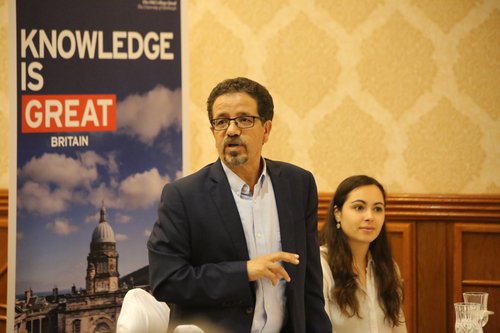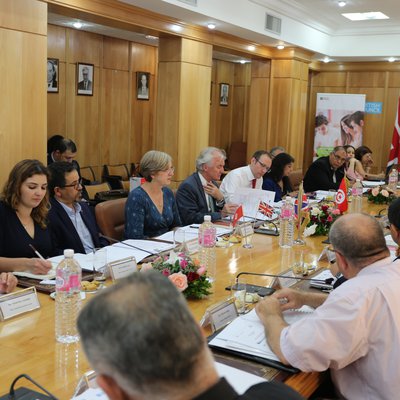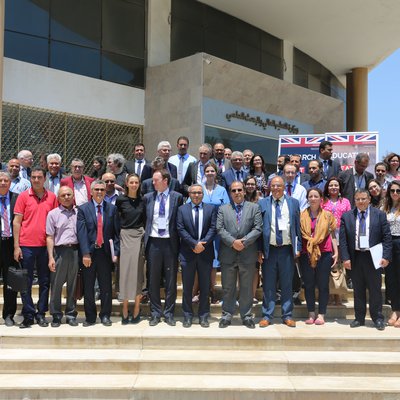Professor Mohamed-Salah Omri has been instrumental in efforts to transform higher education links between Tunisia and the UK
In its own words, the Commission aims ‘to transform higher education links between Tunisia and the UK by 2021. The Commission is a response to significant ambition on the part of both governments to achieve a step-change in the level of cooperation between the two countries.’
 The commission held its inaugural meeting at the Ministry of
Higher Education and Scientific Research in Tunis on 21 June 2018 and was attended
by officials and academics from both countries, including the Tunisian Minister
of Higher Education and Alister Burt, MP and Minister for the Middle East and
North Africa, and a graduate of St John’s, and the British Ambassador in
Tunisia, Louise de Sousa.
The commission held its inaugural meeting at the Ministry of
Higher Education and Scientific Research in Tunis on 21 June 2018 and was attended
by officials and academics from both countries, including the Tunisian Minister
of Higher Education and Alister Burt, MP and Minister for the Middle East and
North Africa, and a graduate of St John’s, and the British Ambassador in
Tunisia, Louise de Sousa.
Kate English, Deputy Ambassador in charge of the initiative and an Oxford alumna, explains: ‘It was in the course of discussions in December 2017 with a number of British universities that Professor Omri suggested the idea of a Commission, which struck me as an ideal way to identify the opportunities and blockages to greater higher education collaboration between our two countries. I am very grateful to Professor Omri for his support in establishing the Commission and in helping to make its inaugural meeting such a success.’
The commission identified a number of issues to work on over the next three years, which include the mobility of students and staff, the governance of Tunisian universities, employability, research collaboration, and the teaching of English for Tunisians and of Arabic for UK students in Tunisia.
The second action of the committee was a matchmaking event between Tunisian and UK universities, where Professor Omri represented Oxford and St John’s College. Fifteen UK universities were represented, in addition to representatives from UUK and QAA, while on the Tunisian side all 13 public universities as well as a number of private institutions were present.
Professor Omri has been pursuing links with Tunisia for a number of years, and has had continuous research collaboration with universities and individuals in the country, which resulted in several conferences in Tunisia and in Oxford, and four books. The pace and scale of this collaboration has seen decisive change after the Tunisian revolution of 2011. Its broad aim is consolidating democracy in Tunisia and encouraging stronger ties in education and knowledge exchange, which are areas of key importance to Tunisia, and of high interest to the UK.

